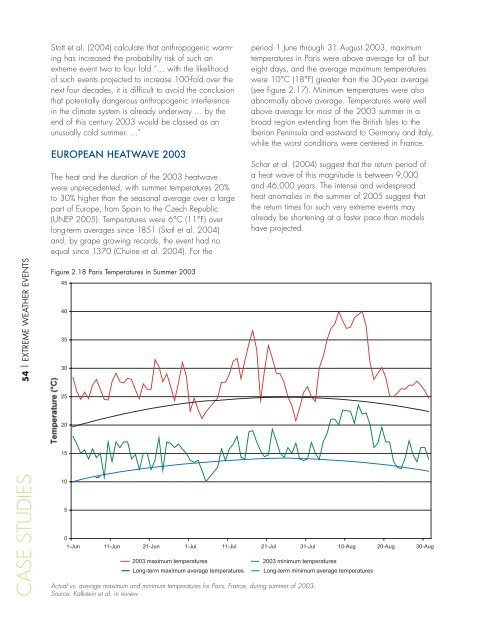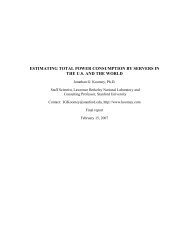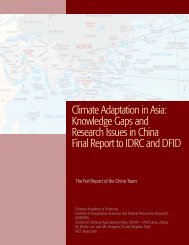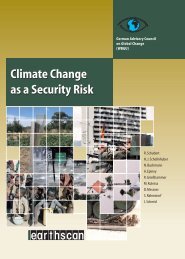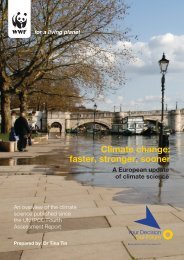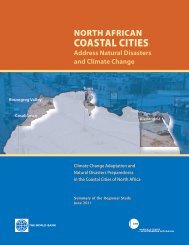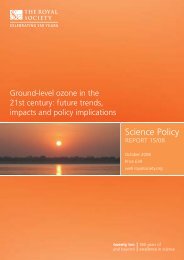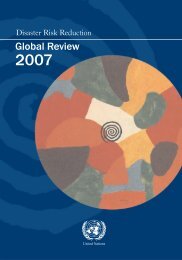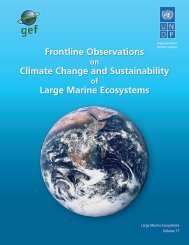Climate change futures: health, ecological and economic dimensions
Climate change futures: health, ecological and economic dimensions
Climate change futures: health, ecological and economic dimensions
You also want an ePaper? Increase the reach of your titles
YUMPU automatically turns print PDFs into web optimized ePapers that Google loves.
Stott et al. (2004) calculate that anthropogenic warminghas increased the probability risk of such anextreme event two to four fold “... with the likelihoodof such events projected to increase 100-fold over thenext four decades, it is difficult to avoid the conclusionthat potentially dangerous anthropogenic interferencein the climate system is already underway ... by theend of this century 2003 would be classed as anunusually cold summer. ...”EUROPEAN HEATWAVE 2003The heat <strong>and</strong> the duration of the 2003 heatwavewere unprecedented, with summer temperatures 20%to 30% higher than the seasonal average over a largepart of Europe, from Spain to the Czech Republic(UNEP 2005). Temperatures were 6°C (11°F) overlong-term averages since 1851 (Stotl et al. 2004)<strong>and</strong>, by grape growing records, the event had noequal since 1370 (Chuine et al. 2004). For theperiod 1 June through 31 August 2003, maximumtemperatures in Paris were above average for all buteight days, <strong>and</strong> the average maximum temperatureswere 10°C (18°F) greater than the 30-year average(see figure 2.17). Minimum temperatures were alsoabnormally above average. Temperatures were wellabove average for most of the 2003 summer in abroad region extending from the British Isles to theIberian Peninsula <strong>and</strong> eastward to Germany <strong>and</strong> Italy,while the worst conditions were centered in France.Schar et al. (2004) suggest that the return period ofa heat wave of this magnitude is between 9,000<strong>and</strong> 46,000 years. The intense <strong>and</strong> widespreadheat anomalies in the summer of 2005 suggest thatthe return times for such very extreme events mayalready be shortening at a faster pace than modelshave projected.54 | EXTREME WEATHER EVENTSFigure 2.18 Paris Temperatures in Summer 200345403530252015CASE STUDIES10501-Jun 11-Jun 21-Jun 1-Jul 11-Jul 21-Jul 31-Jul 10-Aug 20-Aug 30-Aug2003 maximum temperaturesLong-term maximum average temperatures2003 minimum temperaturesActual vs. average maximum <strong>and</strong> minimum temperatures for Paris, France, during summer of 2003.Source: Kalkstein et al. in reviewLong-term minimum average temperatures


